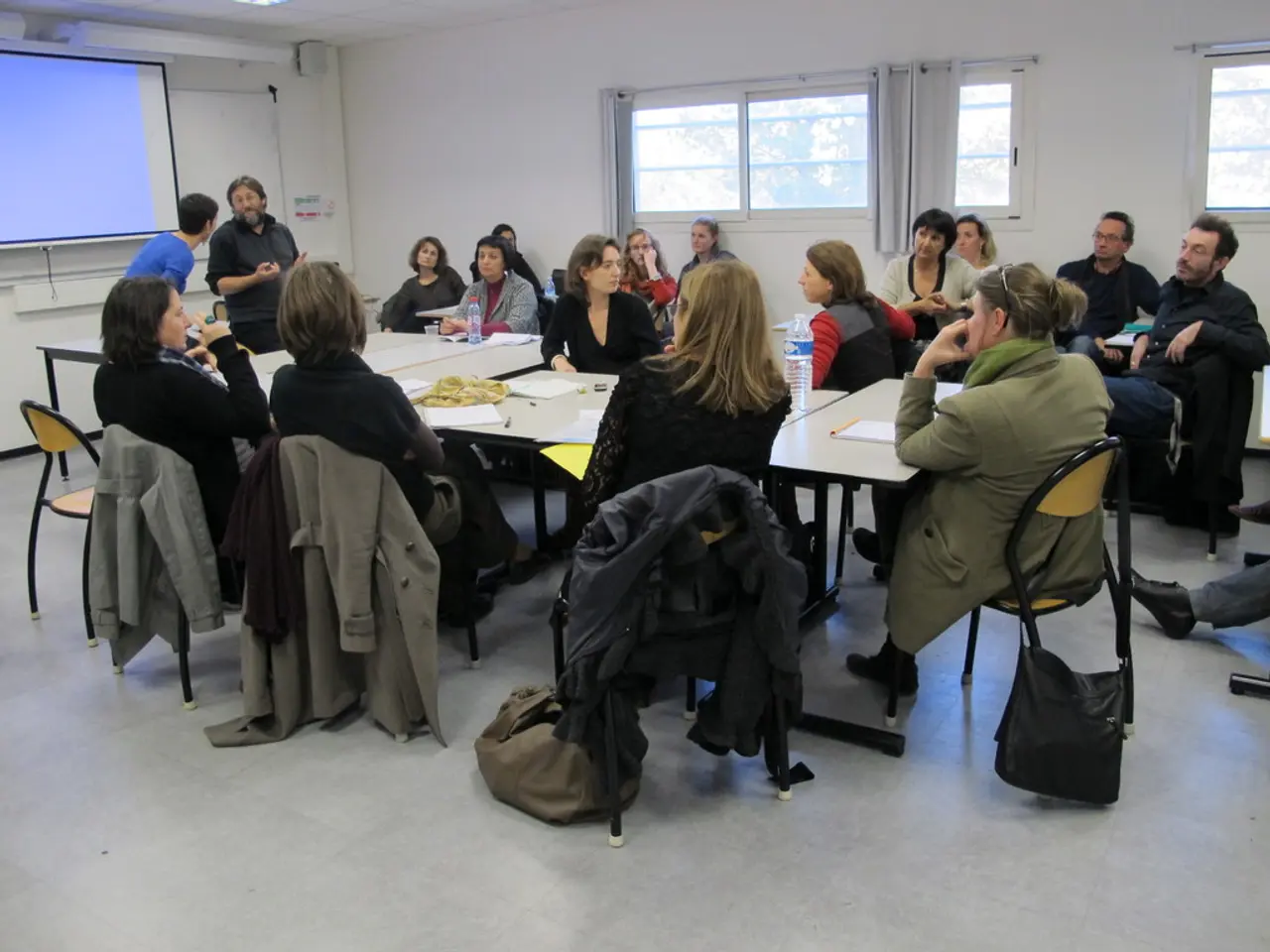Establishing Connections with Anyone: 5 Effortless Methods
Neuroeconomist Dr. Paul Zak's Unconventional Approach to Understanding Human Behavior
Dr. Paul Zak, a neuroeconomist, researcher, teacher, and author, has dedicated his career to exploring the complexities of human behavior in economic contexts. His work bridges the gap between neuroscience and economics, providing a deeper understanding of how emotions, brain activity, and social interactions influence our decisions.
Dr. Zak's fascination with oxytocin, a hormone linked to empathy and social bonding, began while studying how trust affects economic performance and why parents invest so much energy into their children. His research has shown that oxytocin plays a significant role in economic behavior, influencing our decisions in ways that challenge classical economic views.
In his research, Dr. Zak has found that people are far more varied from the average than what is considered "normal." He encourages diversity in people's backgrounds and thoughts, and his lab does not have an office or a hierarchical structure.
One of Dr. Zak's notable studies involved partnering with an organization to study social evolution in the rainforests of Papua New Guinea. He found that oxytocin operates the same way in remote areas as it does in developed countries, challenging the assumption that economic and social structures greatly influence oxytocin production.
In Japan, Dr. Zak used wearable monitors to measure the amount of connection between couples and provided them with actionable exercises to strengthen their relationships. He refers to himself as an "elevator talker" and initiates social interactions to stimulate oxytocin production, using his go-to opener, "Hello, how are you?"
Dr. Zak encourages people to call out the emotion they see in others and seeks to make his interactions as valuable as possible by identifying someone's inner emotions. He believes that touch, group movement, stories, movies, music, mutual gazing, and sex all release oxytocin.
Interestingly, Dr. Zak discovered that memories can trigger oxytocin. When reading a word that reminds someone of a positive interaction, the brain can activate the memory of that interaction and release oxytocin. He signs off his emails with "Hugs, Paul" as a written form of oxytocin.
Dr. Zak's research focuses on studying brain activity when people make decisions about themselves, money, other people, or other situations. His work has led to the publication of two books, "Trust Factor: The Science of Creating High-Performance Companies" and "The Moral Molecule: How Trust Works."
Dr. Zak no longer believes in the stigma that people with a bunch of letters after their name are smart and those without are ill-informed. He encourages open-mindedness and curiosity, values that are reflected in his unconventional approach to understanding human behavior.
Dr. Zak's unconventional approach to understanding human behavior extends beyond economic contexts, delving into various aspects of personal life such as relationships, lifestyle, education-and-self-development, and personal-growth. For instance, his study in Japan aimed at strengthening couples' relationships, and he believes that various activities like touch, stories, movies, music, mutual gazing, and sex can promote oxytocin release, which plays a significant role in these areas. Furthermore, Dr. Zak advocates for open-mindedness and curiosity in learning and personal development, aligning with his emphasis on understanding human behavior in its entirety.




